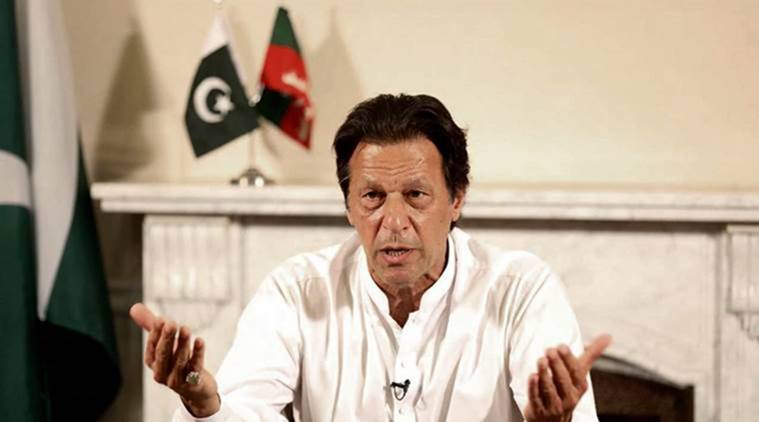 Imran Khan (File)
Imran Khan (File)
Pakistan Prime Minister Imran Khan’s proposal to provide citizenship to the children of Afghan refugees born in Pakistan has been the subject ofmuch debate. Himself of Pashto heritage, Khan’s move is being seen in some quarters as a way to shore up his support base. Meanwhile, Afghan ambassador to Pakistan Omar Zakhilwal has said that Afghanistan would like to see the refugees returned home.
Sarah Hyder, an International relations and law researcher, argues in Dawn that granting them citizenship “will not solve the problems of refugees”. After going over the legal basis for citizenship naturalisation, she argues that “merely four years after Independence” the lawmakers drafting Pakistan’s Citizenship Act “could not have envisaged a future influx from a non-Indo-Pakistan territory”. Currently, Karachi is the largest Pashto city in the world, and there has been a near constant and steady influx of refugees for over three decades. Apart from legal concerns, Hyder also points to the political-social consequences of naturalisation: ”In Pakistan, reservations that the representatives of host communities have fiercely expressed to any suggestion of naturalisation are expressions of their complex circumstances: concerns over space and resources, ethnic and demographic tensions and the environment. Entrenching these through naturalisation would be condescending to those in the thick of it.”
She argues that refugee rights should be clearly laid out and enforced. “At its most liberal, a non-citizenship refugee regime can give refugees all the same economic, social and civil rights (save political rights) as nationals, while they retain their existing nationality,” she argues.
Watchdogs watched
The October 21 editorial in Dawn expresses its concern over the proposed formation of the Pakistan Media Regulatory authority under which “the existing regulatory bodies are to be consolidated to oversee print, electronic and social media”. Information Minister Fawad Chaudhry said that “no one will be able to defame anyone under the new law”.
The editorial points out that the government has done little to abjure media censorship and pressures the latter faces. “The report by the Committee to Protect Journalists, which condemned the throttling of press freedom in Pakistan through brazen acts of intimidation, elicited no statement asserting the government’s commitment to a free and independent media and the protection of journalists. Can one see this in anything but a negative light?” it says.
The editorial does give the government some benefit of doubt, claiming that its intention may not be to censor. It says: “Granted, lifting censorship from state-run PTV and PBC was laudable, but these media outlets remain under the information ministry’s control, rather than being overseen by an independent board.”
The government’s stated objective — to prevent defamation — however, is better met by strengthening libel laws. Finally, Dawn cautions: “The state’s attempts at controlling the media in Pakistan have an ugly, brutal history rooted in some of the worst excesses of dictatorship, and the government must take all stakeholders on board before it embarks on an ill-advised exercise in perceived authoritarianism.”
Opposition denied
The Jaitiya Oikyafront, the recently formed alliance of the prime opposition BNP and several other parties, has been denied permission to hold its maiden rally in Sylhet by the local metropolitan police due to “security concerns”, without specifying the nature of these concerns. With the Bangladesh general elections expected to be announced any time, the October 20 editorial of The Daily Star takes exception to the seeming muzzling of the political opposition.
“The much-vaunted level playing field, if there was one at all, has been made even more difficult to achieve due to the fact that the police has filed thousands of cases against tens of thousands of opposition activists in a month, including against thousands unnamed,” it says. The Awami League government’s claim that “it wants to play fair” does not seem to be bearing out.
“For an election to be conducted in a fair manner,” it says, “all parties must be given equal space to carry out campaigning”.
The editorial ends with a plea to the Bangladesh Election Commission: “We urge the Election Commission to assert its authority to ensure a level playing field for all. Every party must be given proportionate and equal space to carry out politicking. Otherwise, the forthcoming election will not reflect the will of the people.”